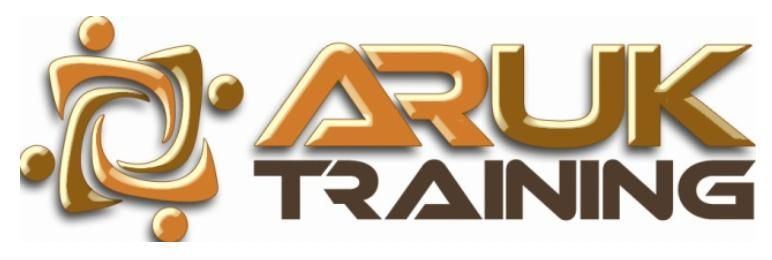
ERP Workshop - Selection, Preparation and Implementation Strategy
Course ID: 2508254501243EGI
Course Dates : 25/08/25 Course Duration : 5 Studying Day/s Course Location: Istanbul, Turkey
Language: Bilingual
Course Category: Professional and CPD Training Programs
Course Subcategories: Operations and Process Excellence
Course Certified By: * Projacs Academy
* Professional Training and CPD Programs
Certification Will Be Issued From :
KSA
Course Fees: £3,424.06
Vat Not Included in the price. VAT may vary depending on the country where the course or workshop is held.
Click to Pay
Date has passed please contact us Sales@e-s-hub.com
Course Information
Introduction
Enterprise Resource Planning (ERP) systems have become the backbone of modern organizations, enabling seamless integration of business processes and fostering data-driven decision-making. As industries evolve in complexity and scale, the demand for robust ERP solutions has surged, making their selection, preparation, and implementation a critical competency for professionals. This course is designed to equip participants with the skills and knowledge necessary to navigate the intricate landscape of ERP systems effectively. With globalization, digital transformation, and competitive pressures reshaping industries, organizations must ensure that their ERP strategies align with operational goals and long-term vision.
A recurring challenge in ERP initiatives lies in the misalignment between organizational needs and system capabilities. Many organizations face costly overruns, underutilized features, or failed implementations due to inadequate planning or lack of expertise. The Standish Group’s CHAOS Report highlights that nearly 70% of ERP projects experience delays or exceed budgets, underscoring the need for structured methodologies. By addressing these gaps, this workshop empowers participants to leverage frameworks such as Kotter’s Change Management Model and Porter’s Value Chain Analysis to ensure successful outcomes. These tools provide a theoretical foundation for understanding how ERP systems can drive efficiency and competitiveness.
The benefits of mastering ERP strategies extend beyond individual career advancement; they also contribute significantly to organizational success. Professionals who understand the nuances of ERP systems can streamline workflows, reduce redundancies, and enhance collaboration across departments. For example, a manufacturing firm facing supply chain disruptions implemented an ERP system tailored to its production schedules, resulting in a 25% reduction in lead times. Such real-world examples underscore the transformative potential of ERP when deployed strategically. Participants will gain insights into similar case studies, allowing them to apply best practices in their own contexts.
Incorporating lessons from established theories, the course delves into the Technology Acceptance Model (TAM) and its implications for user adoption. Resistance to change remains one of the most significant barriers to ERP success, often stemming from poor communication or insufficient training. By examining industry trends, such as the rise of cloud-based ERP solutions and AI-driven analytics, participants will explore how emerging technologies are reshaping traditional approaches. These discussions will be enriched by anecdotes from companies like Tesla, which leveraged ERP to integrate manufacturing and logistics seamlessly.
For organizations, investing in ERP expertise translates into measurable improvements in productivity, cost savings, and customer satisfaction. A retail conglomerate transitioning to an omnichannel ERP platform reported a 30% increase in sales attributed to improved inventory management and personalized marketing. Similarly, healthcare providers utilizing ERP systems for patient records and billing have achieved greater accuracy and compliance with regulatory standards. These stories highlight the versatility of ERP systems across sectors, reinforcing their value proposition for diverse industries.
Ultimately, this workshop bridges the gap between theory and practice, equipping participants with actionable strategies for ERP success. Whether you are evaluating vendors, preparing your organization for implementation, or managing post-deployment challenges, the course provides a comprehensive roadmap. By combining technical insights with practical applications, it ensures that participants emerge not only as informed decision-makers but also as catalysts for organizational growth.
Objectives
By attending this course, participants will be able to:
Analyze organizational requirements to identify appropriate ERP solutions aligned with strategic goals.
Evaluate vendor offerings using criteria such as scalability, functionality, and total cost of ownership.
Design a comprehensive implementation plan incorporating risk mitigation and stakeholder engagement strategies.
Apply change management principles to facilitate smooth transitions during ERP deployment.
Implement data migration protocols ensuring accuracy, security, and compliance with industry standards.
Assess post-implementation performance metrics to optimize system utilization and address ongoing challenges.
Develop contingency plans to manage unforeseen disruptions during the ERP lifecycle.
Who Should Attend?
This course is ideal for:
IT Managers and System Administrators seeking to deepen their understanding of ERP systems and their implementation.
Business Analysts responsible for aligning technology solutions with organizational needs.
Project Managers overseeing ERP initiatives and requiring structured methodologies for success.
Consultants advising clients on ERP selection and deployment strategies.
Senior Executives aiming to enhance their oversight of digital transformation projects.
These groups will find the course valuable as it addresses both technical and managerial aspects of ERP, bridging the gap between IT and business functions. While prior familiarity with ERP concepts is beneficial, the course is structured to accommodate beginners and intermediate learners, providing foundational knowledge alongside advanced applications.
Training Method
• Pre-assessment
• Live group instruction
• Use of real-world examples, case studies and exercises
• Interactive participation and discussion
• Power point presentation, LCD and flip chart
• Group activities and tests
• Each participant receives a 7” Tablet containing a copy of the presentation, slides and handouts
• Post-assessment
Program Support
This program is supported by:
* Interactive discussions
* Role-play
* Case studies and highlight the techniques available to the participants.
Daily Agenda
The course agenda will be as follows:
• Technical Session 08.30-10.00 am
• Coffee Break 10.00-10.15 am
• Technical Session 10.15-12.15 noon
• Coffee Break 12.15-12.45 pm
• Technical Session 12.45-02.30 pm
• Course Ends 02.30 pm
Course Outlines
Understanding ERP Fundamentals
Overview of ERP systems and their role in modern organizations
Key components and modules of ERP software
Industry trends shaping ERP development and adoption
Case study analysis: Lessons from successful ERP implementations
Day 2:
Selection Criteria and Vendor Evaluation
Identifying organizational requirements and priorities
Developing evaluation frameworks for vendor assessment
Conducting proof-of-concept trials and demos
Negotiating contracts and service-level agreements
Day 3:
Preparing for Implementation
Building a cross-functional implementation team
Creating a detailed project timeline and budget
Addressing cultural and organizational resistance
Establishing key performance indicators (KPIs) for success measurement
Day 4:
Data Migration and System Integration
Mapping current processes to new ERP functionalities
Ensuring data integrity through cleansing and validation
Integrating third-party applications and legacy systems
Testing and troubleshooting pre-launch scenarios
Day 5:
Post-Implementation Optimization
Monitoring system performance and user feedback
Conducting periodic audits and updates
Leveraging analytics for continuous improvement
Developing disaster recovery and maintenance plans


















































